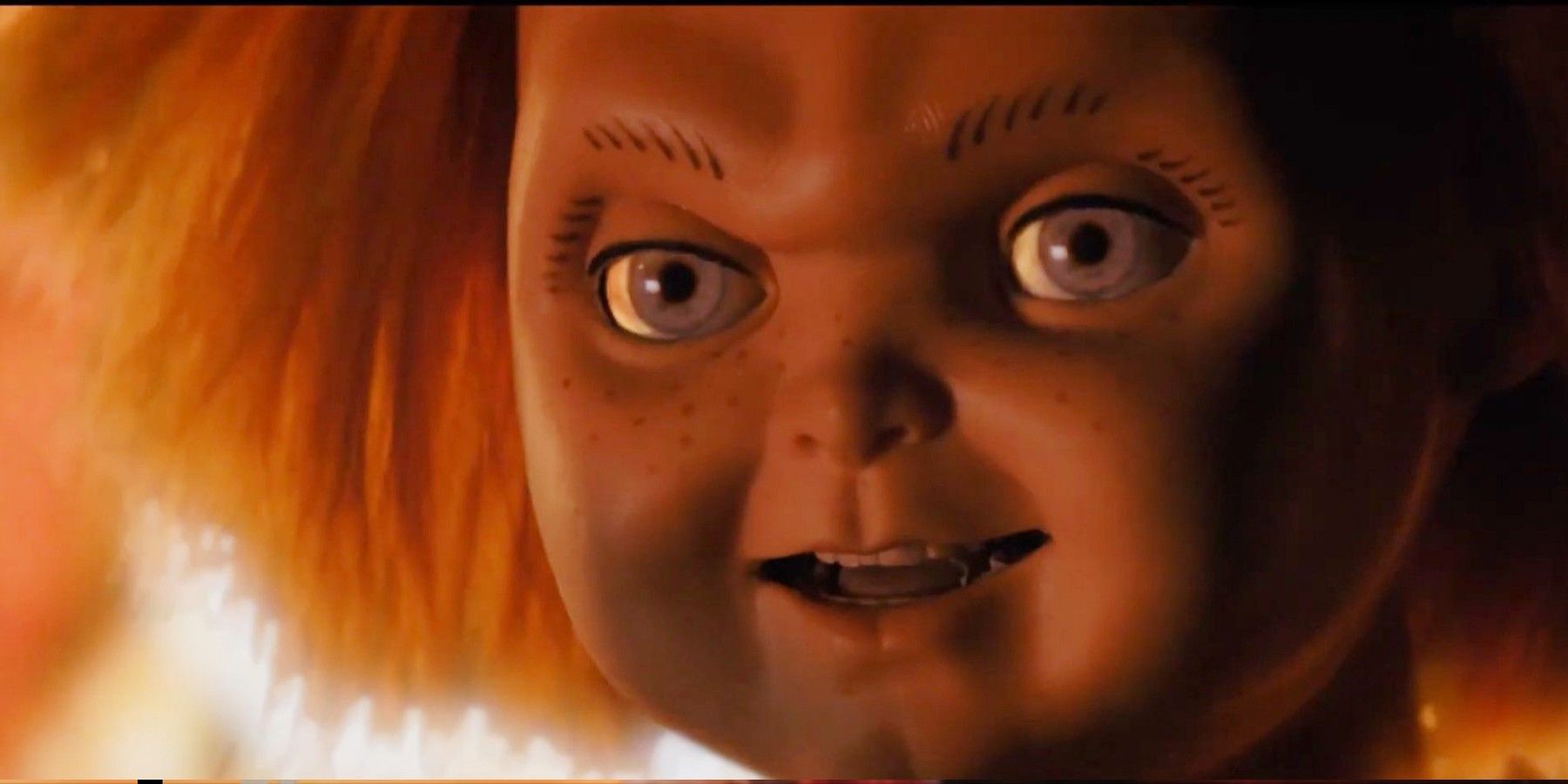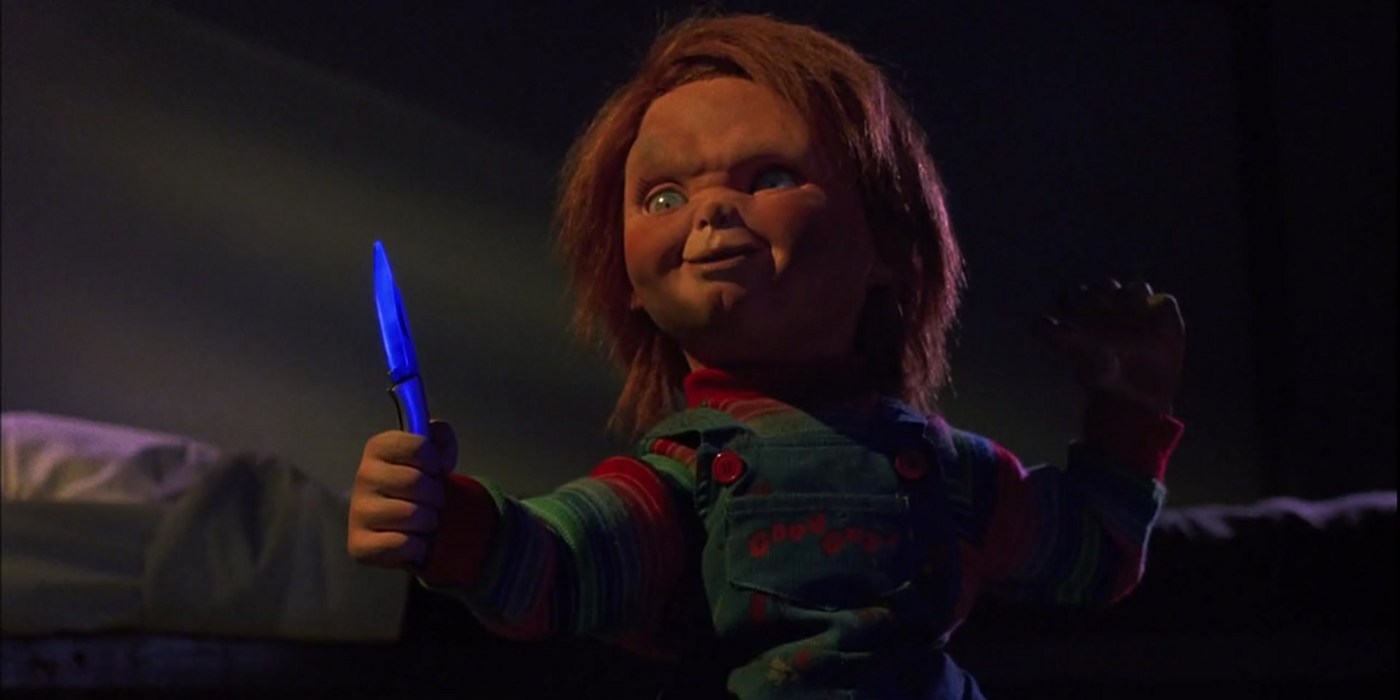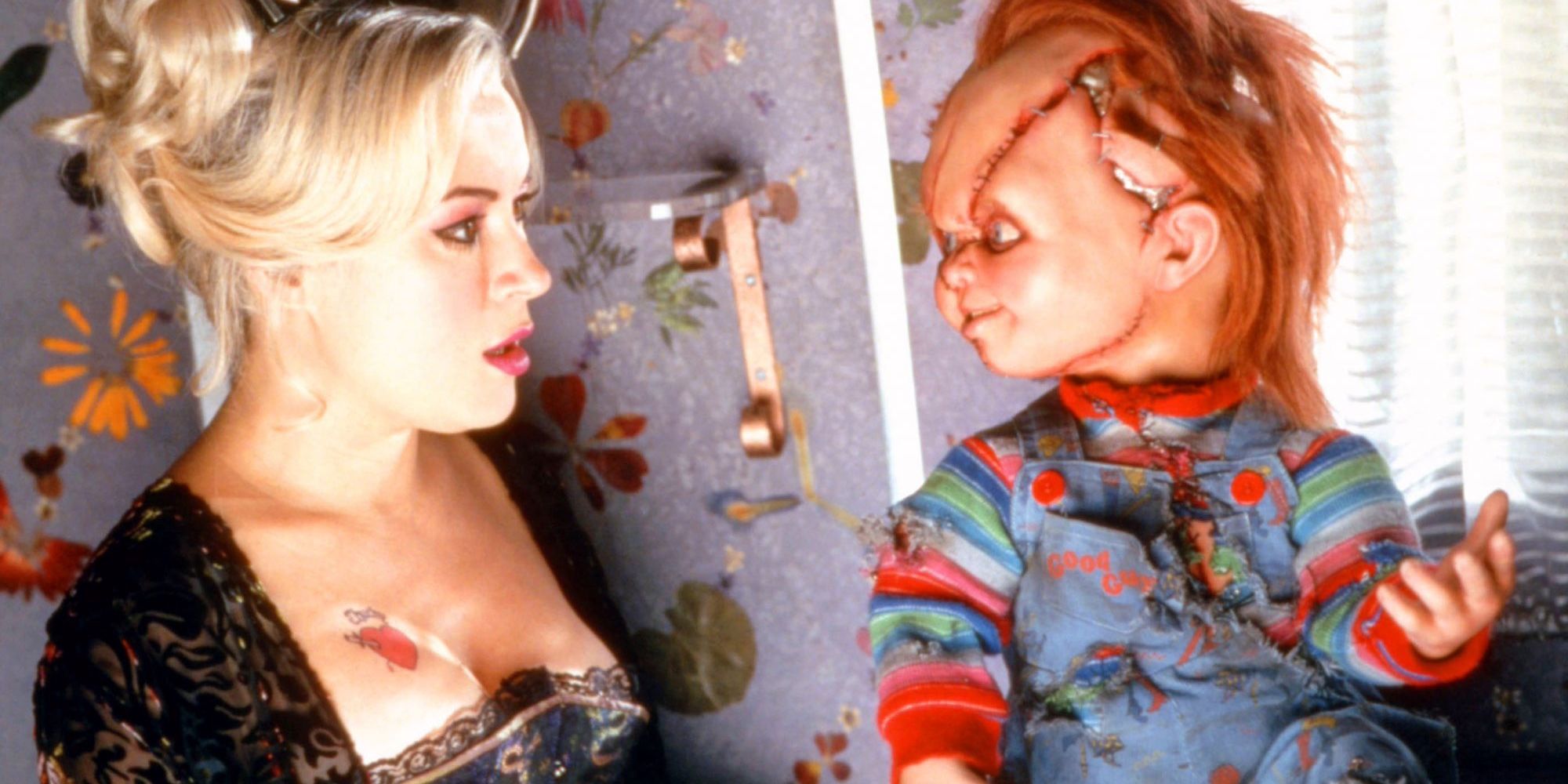Child's Play is a franchise that has never been the top contender in the horror world, but it has remained iconic through the 33 years of its existence. The character of Charles Lee Ray, better known as Chucky has outlasted so many competitors, many with much better films, that it demands an explanation.
There have been eight Child's Play films, along with a currently airing TV series, released since 1988. Since the release of the first film, the longest gap without a Chucky film coming out has been nine years. The main voice behind the franchise has been Don Mancini, who wrote every film except for the 2019 remake, directed the fifth, sixth, and seventh films and created, wrote, and directed the currently airing series.
The Child's Play movies have a particular type of appeal that absolutely does not work on everyone. They're generally very bad, but for a surprising variety of reasons. It's one of the most shocking horror premises to catch on. Serial killer Charles Lee Ray is mortally wounded by the police, and in his final moments, uses his skills in voodoo magic to transfer his mortal soul into a 29 inch tall battery-powered doll. Chucky's motivation is to perform one of several rituals to escape his new body and possess the body of another person. Chucky kills whoever gets in his way, and often anyone who happens to be nearby, and his doll body is effectively unkillable.
The original trilogy of Child's Play films is the pure distillation of the format. Chucky is acquired by a kid named Andy, who becomes his primary nemesis throughout the franchise. The series establishes the rule that Chucky can only escape the doll body by possessing the first person he revealed himself to, linking him with Andy. The first film sees Chucky brought home by Andy, who he manipulates and frames for his actions. Andy's mom discovers the truth and the pair kill Chucky, but like Jason Voorhees before him, he is resurrected by electricity just in time for the sequel. Chucky follows Andy to his next home, then to military school. These films are mostly about Andy, a kid who is traumatized at every turn by Chucky, and repeatedly dedicates himself to stopping the doll. But like all horror franchises, the focus always shifts from the victim to the killer.
Bride of Chucky is the first film to focus entirely on Chucky's story, while also introducing his girlfriend Tiffany. Chucky traps Tiffany's soul in a doll as well, forcing both of them to go on a quest to claim new bodies. The sequel, Seed of Chucky sees the pair birth a doll child, a sensitive bigender doll called Glen and Glenda. This film is also a bit of a meta-narrative, like Wes Craven's New Nightmare, set around an in-universe film called "Chucky Goes Psycho." These films are not really like the original trilogy, they've taken on an immature comedy vibe. The tone feels a bit like a parody of earlier entries, but the franchise retakes the horror genre in the sixth and seventh films. These two were released straight to video, but feel like a merging of the format of the original trilogy and the expanded character list of the fourth and fifth films.
That makes three middling killer doll horror films, two irreverent violent comedies and two straight to DVD attempts to recapture the glory, what makes this series so interesting? For one thing, the Child's Play series loves to take cues from its contemporaries and put its own spin on them. Halloween and Friday the 13th both granted their originally mortal main villain some form of immortality before Chucky started reappearing one way or another. New Nightmare saw Freddy enter the real world to attack filmmakers telling his story, an idea Seed of Chucky used a decade later to even greater effect. In Seed, Tiffany possesses real actress Jennifer Tilly, best known as the voice of Bonnie in Family Guy. In the canon of the series, she's still the real-life actress. This is the kind of fun absurdity the series can play in.
The Child's Play series did not have the grounded base of some of its counterparts, so it was able to go insane from frame one and keep finding new heights throughout. Halloween, Friday the 13th, and The Texas Chainsaw Massacre, all began life as tales of serial killers and gravitated towards more fantastical narratives. Chucky began as a killer doll and stuck to it, so building on that level of crazy took some creativity. Voodoo magic, absurd feats by living toys, intrusions into the lives of real celebrities, and a proudly immature take on horror-comedy makes this killer doll franchise stand out, even in the field of slashers.
The real secret behind Chucky's success is also its most obvious asset, the performer behind the doll. In every film except the remake, Chucky has been portrayed by Brad Dourif, who brings a truly perfect energy to the character. Dourif is, without exaggeration, the reason Chucky remains iconic. Dourif brings real pathos to Chucky; he's hedonistic, smug, cruel, impulsive, and manipulative, but smart and funny enough to occasionally win over the audience. It's most comparable to Robert Englund's performance as Freddy Krueger, fans only needed one film without him to see how crucial he was. Chucky needs a performer who can make a doll with a kitchen knife threatening and hilarious, and Brad Dourif is that performer.
Chucky keeps making it back to screens because of its willingness to build off of its peers, its commitment to absurdity, and its perfect slasher movie performance. Child's Play deserves all the criticism it gets, but the things the franchise does right are the building blocks of lasting success, as proven by Chucky's immortality.



